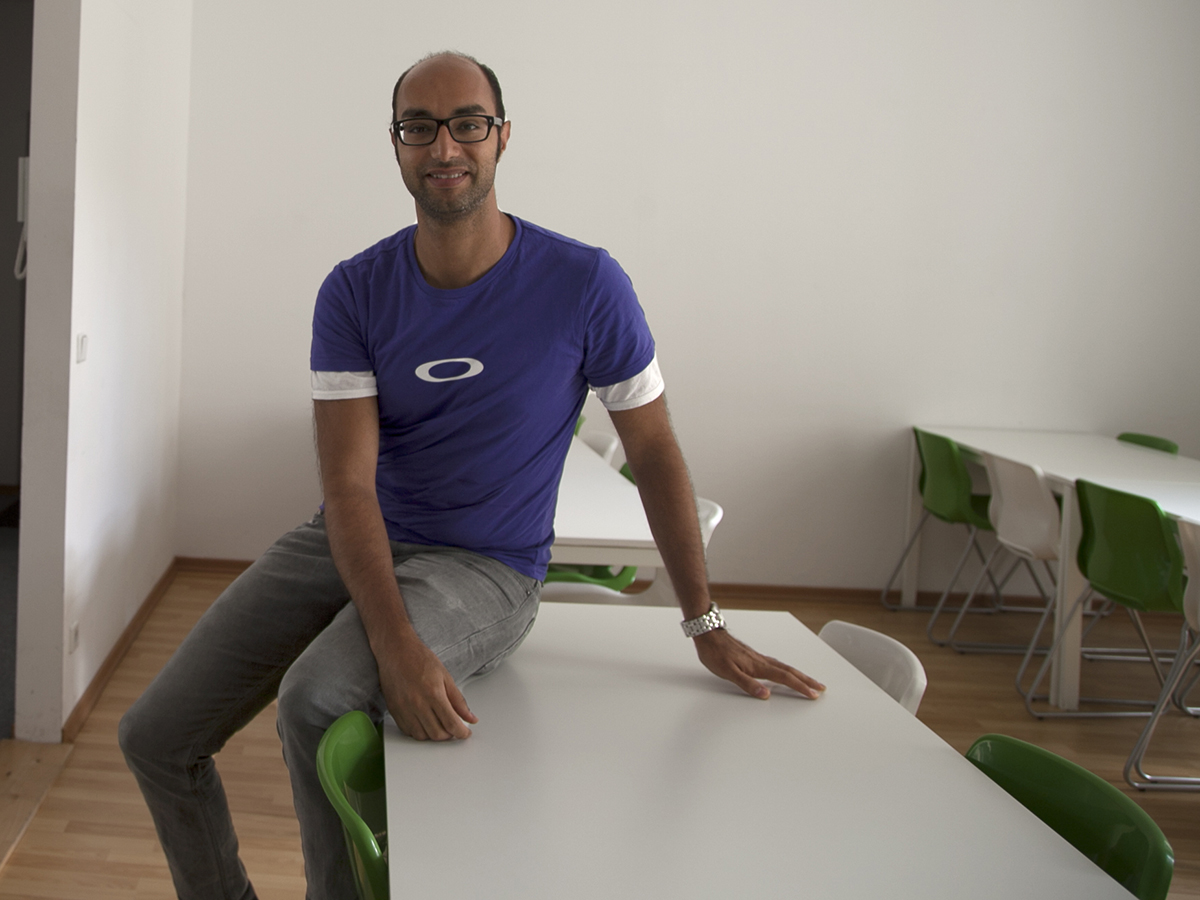Opening science: How a Berlin-based startup is trying to make scientists more social

In 2008, when Ijad Madisch was doing a medical residency in Germany, he tried to convince his supervising professor of the pressing need for a social network for scientists. The professor called him crazy.
"He told me that I should get this birdshit out of my head, that I should focus on my career. He said 'scientists are not social, and this will never change'," Madisch said.
"So I quit the next day."
Madisch, who was at the time studying virology, found a part-time residency at Harvard, where he could devote time and energy to developing ResearchGate, a website that helps scientists connect, share research, and collaborate.
Five years and several investment rounds later (including, most recently, $35m in funding from Bill Gates and Tenaya Capital) ResearchGate is proving that scientists can be social, and currently has almost three million active members.
ResearchGate has all the trappings of your standard social networking site: users can create profiles, follow others, and ask and respond to questions. But its aspirations rise above simple socialisation. "My vision is creating an open science movement, where scientific information is freely available for everyone," Madisch said.
ResearchGate's collaborative potential is becoming clear, with scientists from all disciplines transparently discussing topics that, not too long ago, might have remained siloed away in the Ivory Tower. For instance, last year, a researcher from Cambridge asked a question on the site about technologies that the world would need for more effective conservation. He received responses, and heated debate, from scientists all over the world, which he later discussed in a workshop at Cambridge.
Likewise, two scientists from two corners of the world — one from Nigeria, the other from Italy — looked at a plant pathogen that, for the first time, was found to have killed a human — a 38-day-old girl in Nigeria. The pair, who connected through ResearchGate, have recently published their findings in a peer-reviewed journal.
Even if Madisch sees scientific journals as a necessary part of research, he believes that they can be insular and slow, which puts them at odds with a world that is increasingly the opposite. "I think that disrupting the system has to be done from bottom to top, and it has to be done by changing the mindset of the scientists, because the scientists still publish in the journals — they're still important for the life cycles of their research."
To this end, scientists on ResearchGate are encouraged to post and discuss raw data from their experiments, even if those experiments were not successful. The thinking is that, even if the raw data from 'failed' experiments are not useful to the journals, they can still be valuable for other researchers.
"It's connecting the dots that weren't being connected before," Madisch said.
Madisch's philosophy is that since much of scientific research is paid for by taxpayers, it should be considered a public good.
"I support the view that publicly-funded research should be publicly available. Our tax money is used for research, and I would like to see the results without paying for that again.
"And that's a view that's not supported by every journal," he said.
Bringing Silicon Valley to Berlin
Madisch's idealism, in many ways, reflects ResearchGate's Silicon Valley startup pedigree. Even though the company is based in Berlin, one of its earliest investors and a current board member is Matt Cohler, who was also Facebook's first vice president of product management as well as a founding member of LinkedIn. And Peter Thiel's Founders Fund led a round of investment in ResearchGate early last year.
And ResearchGate's central Berlin office building, with its gaming tables and its casual, dress-down atmosphere, feels like it has been lifted straight from a startup in Palo Alto.
Although Berlin has its benefits — an international environment, inexpensive talent, and an openness to startups — Madisch notes that there are drawbacks, including a lack of senior talent in the region. For example, "you don't have many CFOs who have brought companies public, and you don't have any VPs of engineering who have run companies with a thousand engineers."
But in some ways, that's a good thing, in that there are still a lot of younger people who are driven to make names for themselves, rather than relying on past achievements. "You need some senior people," Madisch said, "but my theory is that it's good to have younger people who are still hungry, who haven't already built up something like DropBox or Pinterest."
With the recent Bill Gates investment, ResearchGate will build an API, and continue working on ways to monetiae the platform. But Madisch no plans to go back to being a doctor.
"This is basically my science," he said.
